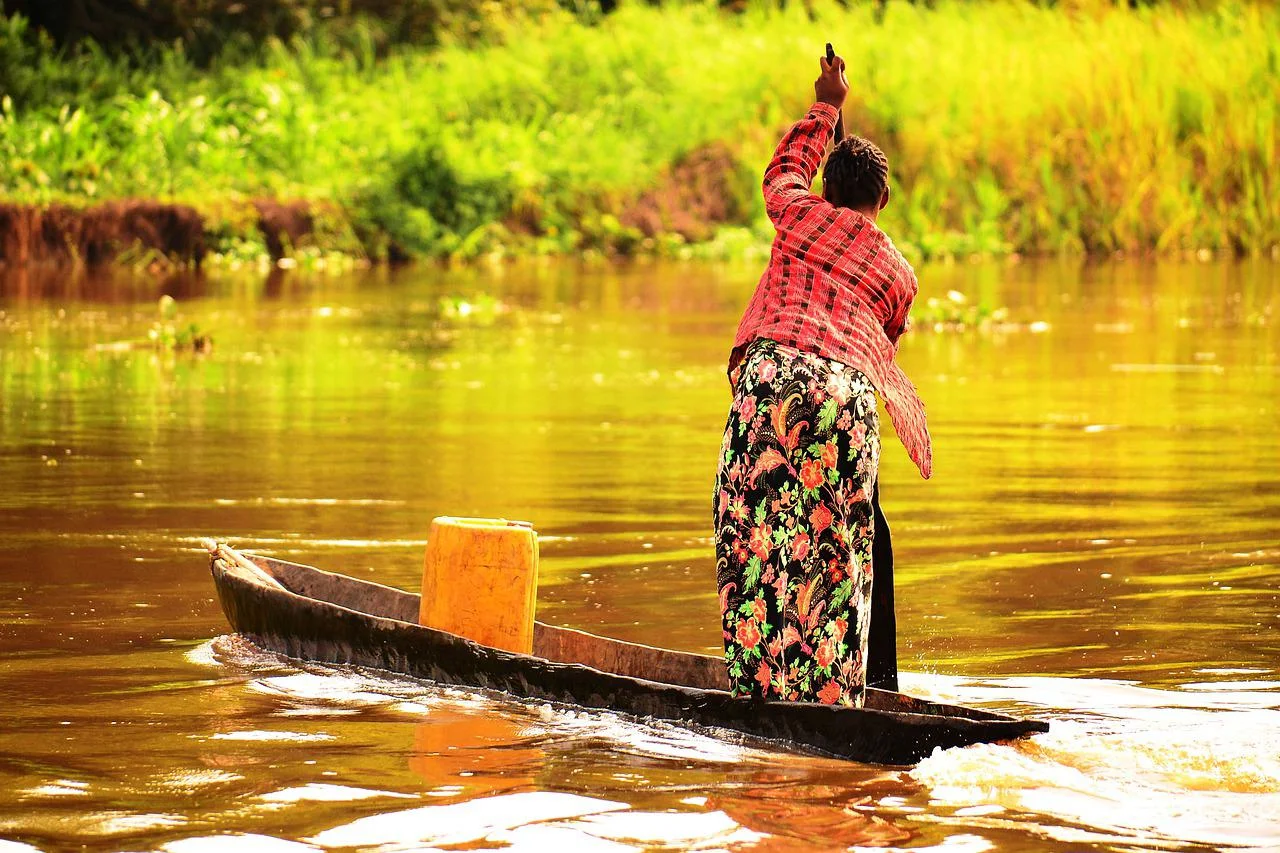'With or against the flow'

Water governance in Goma, DRC.
The project examined households’ daily management, financial governance, access to water and other basic social services in the city of Goma, in eastern Democratic Republic of the Congo (DRC). It used an innovative mix of social network research, ethnography and governance diaries to gain in-depth data to reveal how residents navigate public authority in an insecure environment and cope with unforeseen shocks.
‘Water is a big problem here. Household members are forced to get up at 2am and wait in line until morning when the person who sells water arrives at 5:30am.

The data was collected every two weeks by five Congolese researchers over a period of eleven months. Project leads analysed the data using complementary qualitative and quantitative approaches, yielding a range of outputs from co-authored academic articles to policy briefs and blogs written by researchers.
Researchers

Tim Allen is Director of the Firoz Lalji Institute for Africa and Professor in Development Anthropology at LSE. He is currently the PI for the five-year ESRC-funded Centre for Public Authority and International Development.
Email: t.allen@lse.ac.uk

Thomas Kirk is a researcher and consultant based at LSE. His research interests include the provision of security and justice in conflict-affected regions, social accountability, civil society, local governance and public authority.
Email: t.kirk@lse.ac.uk

Dr Patrycja Stysis a Research Officer at the Centre for Public Authority and International Development. She is working on networked dynamics of governance and cyclic violent and non-violent mobilisation in Central Africa.
Email: p.m.stys@lse.ac.uk

Dr Duncan Greenis Senior Strategic Adviser at Oxfam GB and author of 'How Change Happens' and 'From Poverty to Power'. He also wrties for and edits the blog From Poverty to Power.
Email: d.j.green@lse.ac.uk
The project was jointly funded by Mercy Corps and the Centre for Public Authority and International Development. The former provided funding for the Congolese researchers and expenses in the DRC, and the latter the salaries of Pat Stys, Tom Kirk and Duncan Green.
Publications
Policy briefs
- Understanding household coping strategies in Goma, DRC. Tom Kirk, Patrycja Stys, Samuel Muhindo, Bauma Balume, Papy Mazuri, Ishara Tchumisi, Sandrine N’simire & Duncan Green (2021).
Journal papers
- Kirk, T., Green, D., Stys, P., Mosquera, T. (2023). Adaptive programming and going with the grain: IMAGINE's new water governance model in Goma, DRC. Development Policy Review.
- Stys, P., Muhindoa, S., N’simirea, S., Tchumisia, I., Muzuria, P., Balume, B. & Koskinen, J. (2021). Trust, quality, and the network collection experience: A tale of two studies on the Democratic Republic of the Congo. Social Networks, 68.
Working papers
- An experimental methodology for studying household financial governance and coping mechanisms in Goma, DRC. Stys, P., Kirk, T., Muhindo, S., Balume, B., Mazuri, P., Tchumisi, I., N’simire, S. & Green, D. Working paper, 1/21 (2021).
Blogs
- 'Applying a Public Authorities Lens to a Water Provision Programme in Goma'. Global Policy Opinion, March 2023.
- 'Land conflicts, water usage and unintended feedback loops: research in Goma, DRC,' Africa at LSE blog, September 2019.
- 'International money guards, linguistics and bedrooms: an interview with researchers in Goma, DRC,' Africa at LSE blog, September 2019.
- 'Masculinity, unemployment and education in Goma,' Africa at LSE blog, September 2019.
- 'Establishing trust for intimate longitudinal research in DRC,' Africa at LSE blog, September 2019.
- 'Karuho poisoning and trust while conducting research in Goma,' Africa at LSE blog, September 2019.
- 'Goma’s smallholders and the role of social networks in household survival,' Africa at LSE blog, August 2019.
- 'Notes from the field: beginning a new research project,' Africa at LSE blog, December 2018.